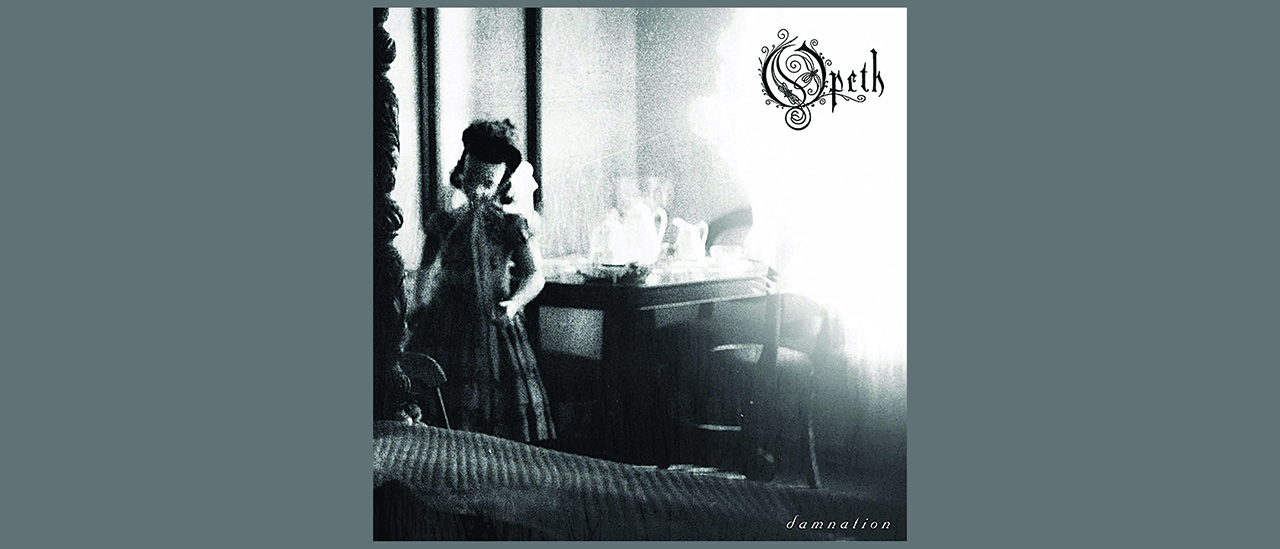You can trust Louder
On its release in 2003, Damnation was a hugely important release for Opeth. While the Swedish outfit were already renowned for threading deep progressive elements through their death metal foundation, that hulking metallic presence was a defining and ever-present feature. On Damnation and preceding sister-piece Deliverance, they separated their dualistic tendencies.
Originally envisaged as a double album and recorded across the same tortuous session, Deliverance drew the aggression while Damnation explored a softer, richer side of the band’s musical personality. That side might now be wholly familiar to Opeth fans – but back in 2003 it was revelatory.
Both albums have already been revisited by producer, musical collaborator and Porcupine Tree founder Steven Wilson, who remixed and remastered them in 2015. Now to mark 20 years since the original’s release, that overhauled version of Damnation gets a dedicated release on limited edition opaque, transparent and picture disc vinyl.
According to mainman Mikael Åkerfeldt, Damnation is the one record out of the band’s entire catalogue best suited for vinyl treatment, due to the fact that it’s “not really cluttered with stuff.” He certainly has a point.
It’s by no means a simplistic piece of work; there’s an emotional depth and layers of diversity in sound and meaning; but these are not achieved by throwing in the compositional kitchen sink. Hope Leaves is a straightforward piece of fragile balladeering, for example, while the instrumental Ending Credits – a track that Åkerfeldt has previously said he ripped off from Camel – rides a slick, six-string lament.
Elsewhere things are a little more involved without ever losing sight of the song at their heart. There’s more than a hint of Porcupine Tree to opener Windowpane, on which Wilson provides the rich Mellotron counterpoints to the bluesy guitar.
Closure builds from Led Zep-esque 12-string folk to an electrified jam, while To Rid The Disease adopts an almost post-rock dynamic with its jarring transitions from rich acoustic guitar to sharper piano interludes.
Sign up below to get the latest from Prog, plus exclusive special offers, direct to your inbox!
Opeth went into the studio with the grand idea of the dichotomous double album – which was vetoed by their label – while Åkerfeldt was plagued by writer’s block, and the frontman’s grandmother passed away towards the end of the recording.
It’s no wonder the lyrics are maudlin, but despite the difficulty of its creation, there’s a creative energy that buzzes through the album. Even without its contextual importance for Opeth, Damnation stands up as a damned fine piece of work and one that’s still worthy of celebration.
The 20th anniversary version of Damnation is on sale now.
Paul Travers has spent the best part of three decades writing about punk rock, heavy metal, and every associated sub-genre for the UK's biggest rock magazines, including Kerrang! and Metal Hammer.

